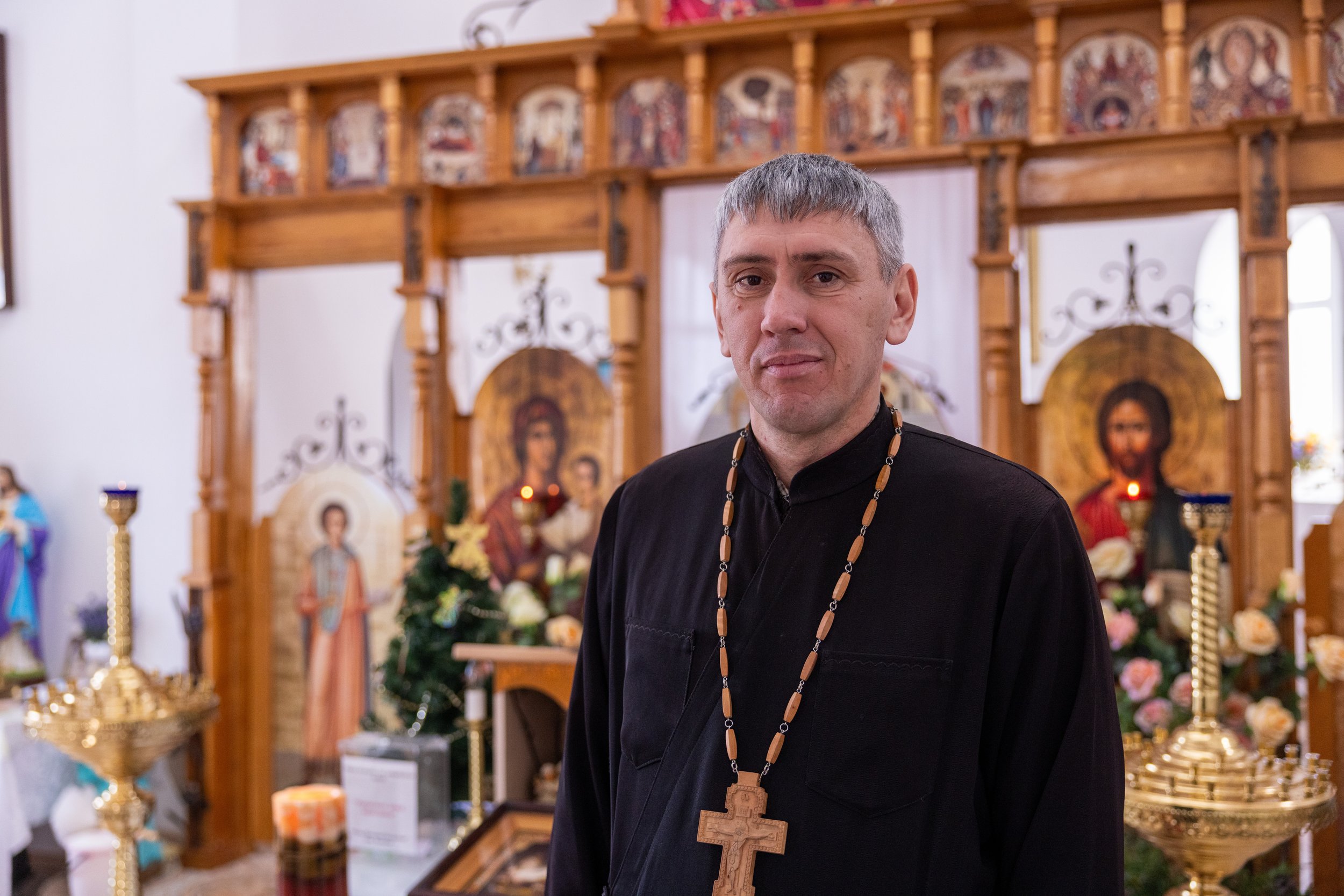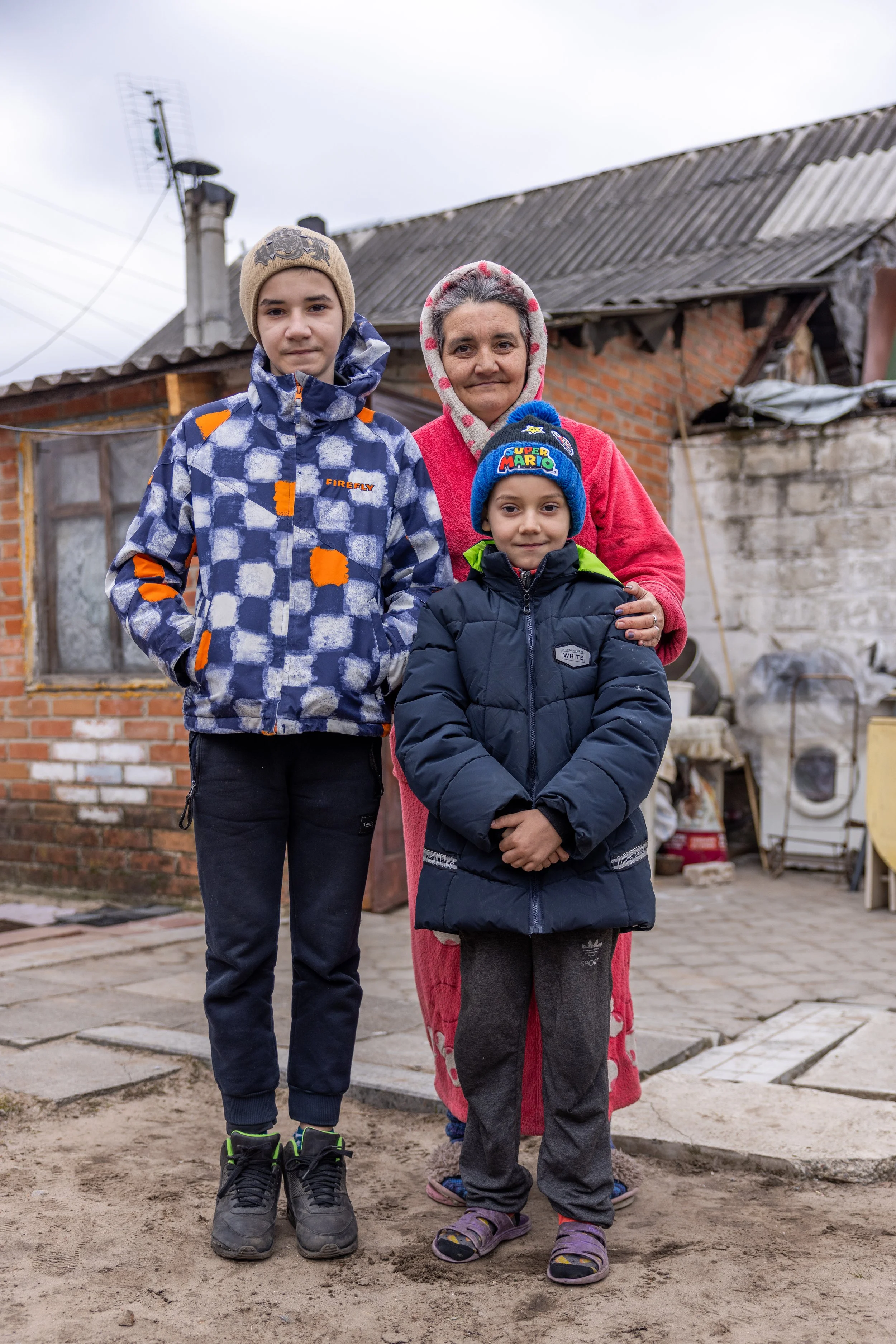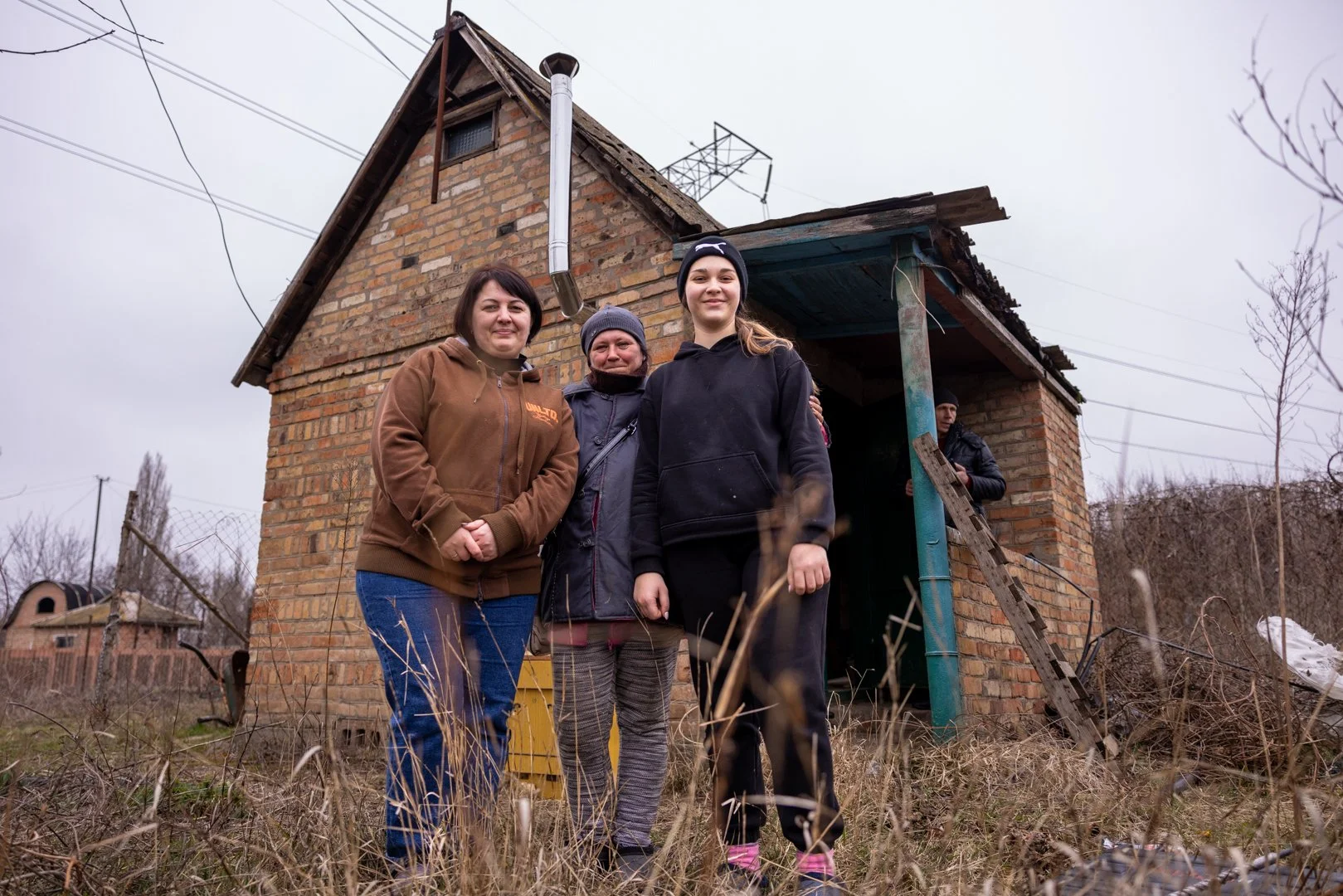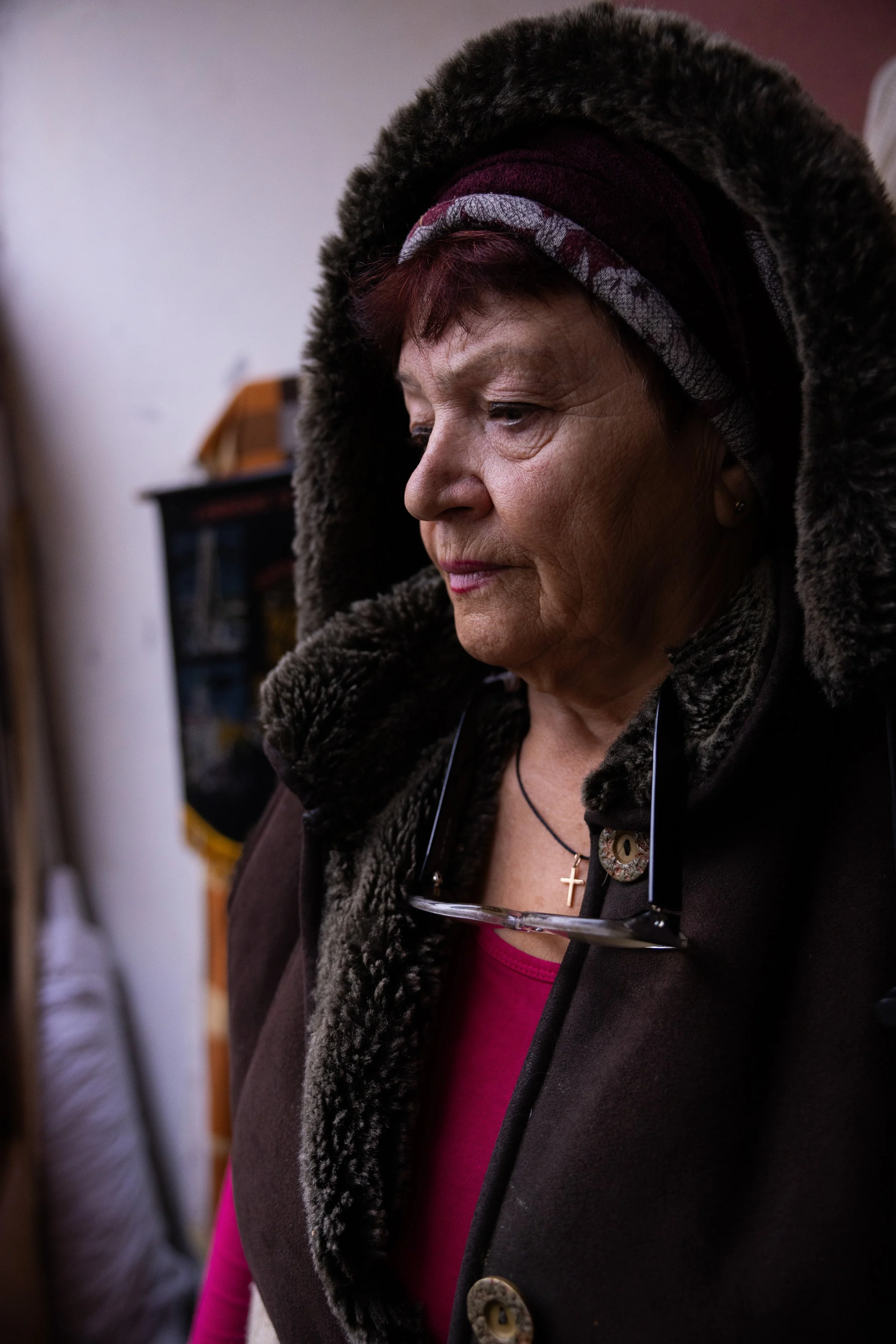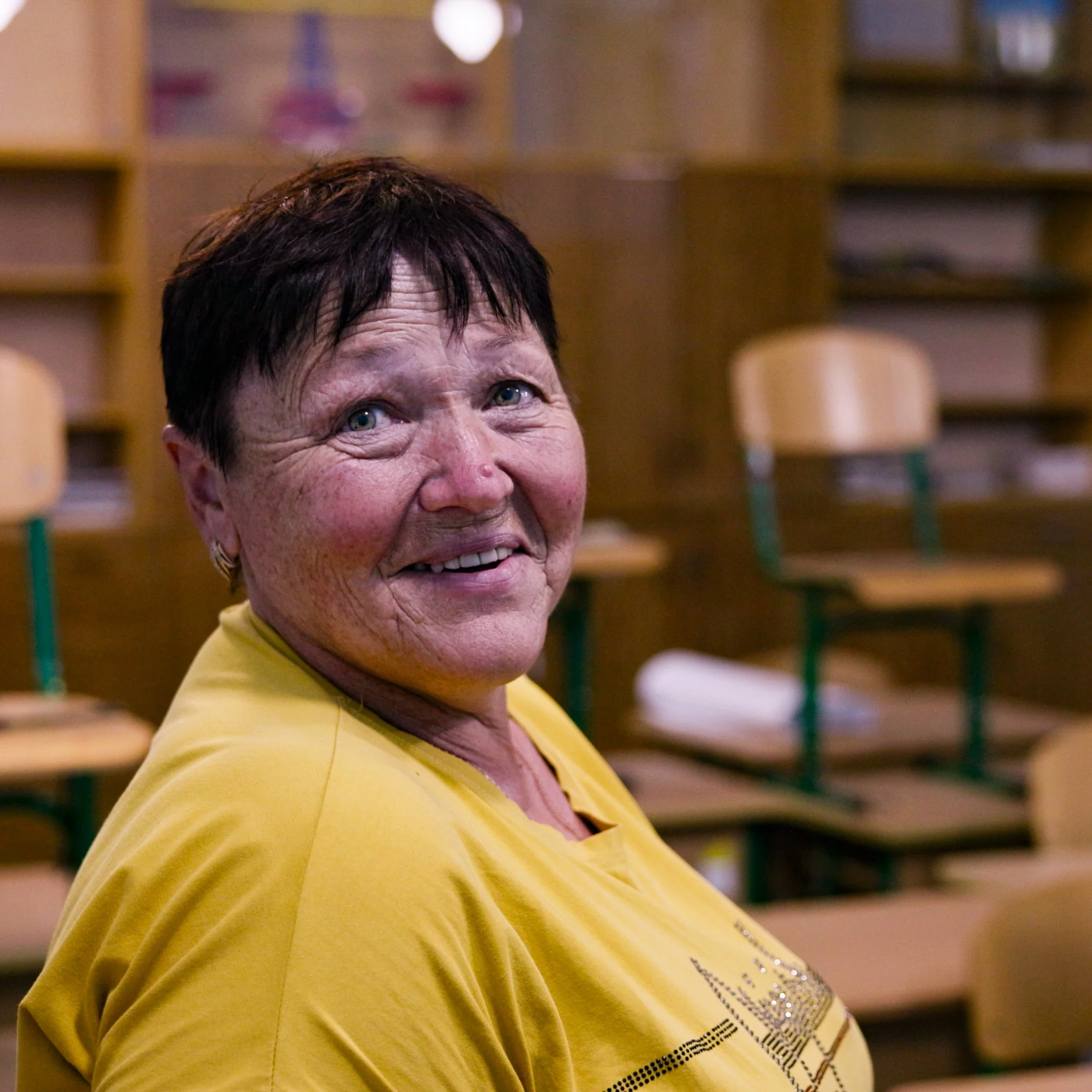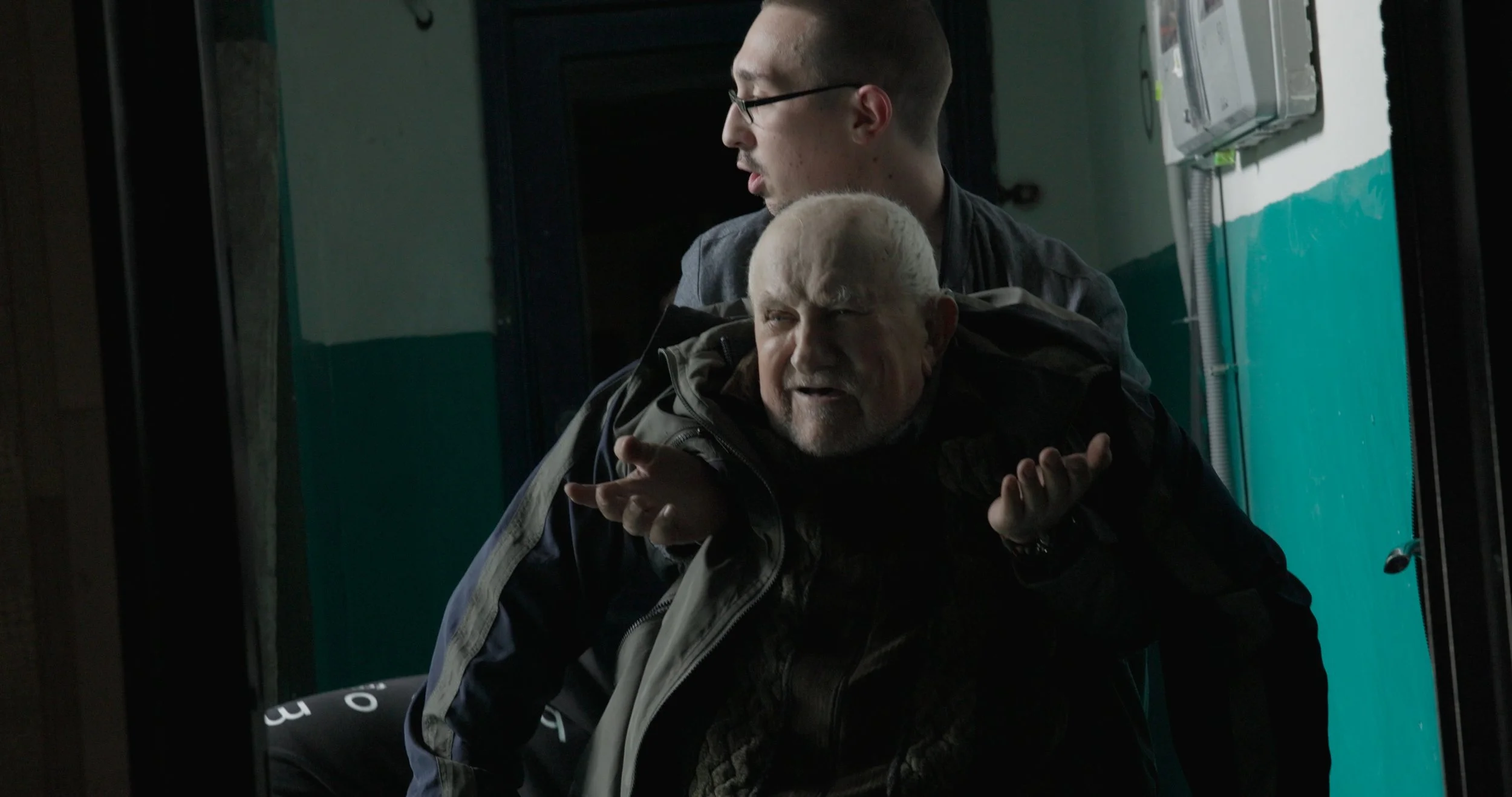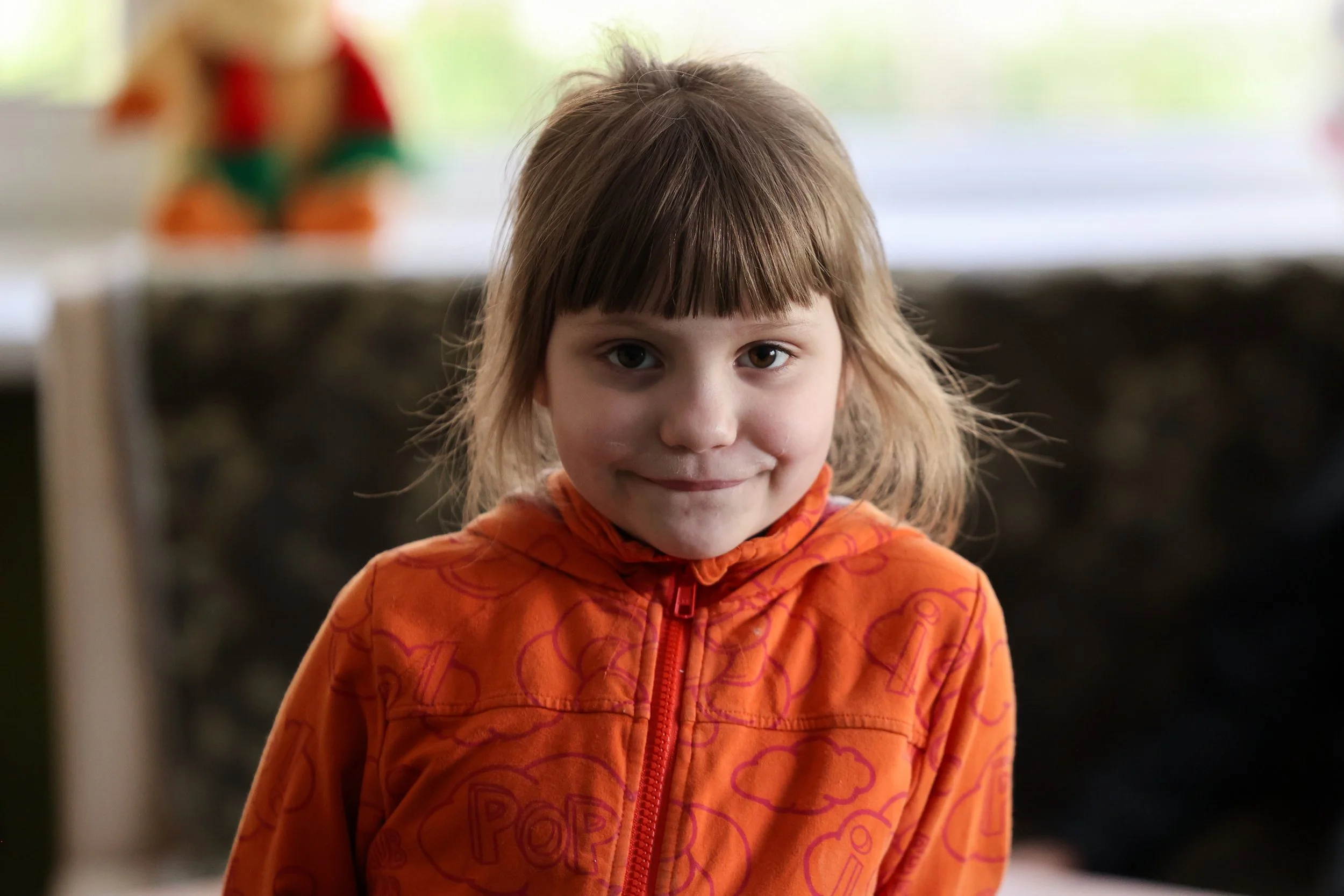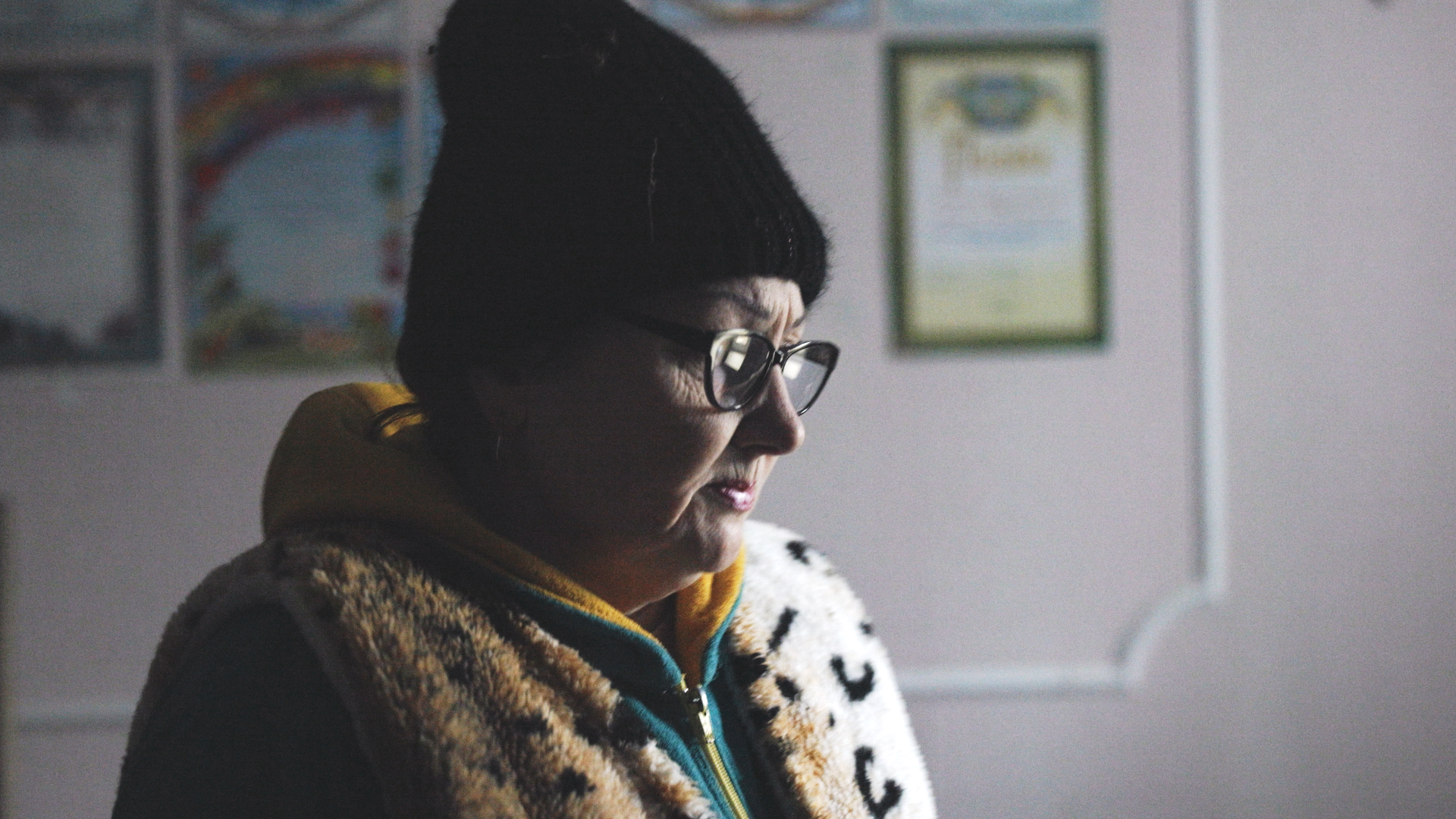
“I ask God, I take everything from God. No one will come to us from heaven to do something for us. We must support each other. God says to give your life for your neighbor, to serve your neighbor. This is your mission; this is your calling.
That's why I'm here.”
Faith in Frontline Kherson, Father Igor.
By Zachary Tarrant
We arrived in Zelenivka on a cloudy overcast morning in early January. It was a rural village, a place where not much happened, where life was peaceful and largely dictated by the ebbs and flows of the agricultural season. That is, before the war – now there was very little farming being done in the Kherson region, and even less peace.
The village was 5km from the Dnipro River, and the current frontline between Ukrainian and Russian forces. It had weathered occupation of the region and Russia’s brutal post-occupation siege of Kherson and its surrounding territories.
Father Igor is a priest of the Ukrainian Greek Catholic Church. He ministers three regional parishes, Zelenivka, Inzhenerny and Antonivka. Now, Antonivka far too dangerous to risk gathering parishioners.
The church in Zelenivka is small with seats for no more than fifty. Standing stark amidst surrounding fields and flatland, its golden dome and pastel green shingles a vibrant splash of color amidst the slate greys and muted browns of the Kherson winter.
As we enter the church, Father Igor is busy lighting ceremonial candles around its altar, obviously proud of his church’s modest regalia.
“This candle was brought to us by the Bethlehemites. Where the Christ was born, this fire, they brought first to Zaporizhzhia, and from Zaporizhzhia here. This candle.”
The very first days of the war found Father Igor and his family at their home roughly a kilometer from the Antonivka Bridge. I was where Igor had lived home 18 years. In February of 2022, as flashes of explosions lit up the sky mere kilometers to the south, it all changed. He knew then it was time to get his family out of harm’s way.
“We made the decision and at approximately 2 or 3 pm. I drove my family and one more from here to Ternopil. And it was good we left then very good because immediately that evening the battles began in Antonivka. Soon there was no light, no water, no gas. It was paralyzed.”
Father Igor paused, recollecting those early days of panic, when Russian forces were storming southern Ukraine from Crimea, a column of metal and destruction hellbent on capturing the city of Kherson.
“If we didn’t do it then, we couldn't leave at all. It was my four children and two more children from the other family. We left.”
Shortly after, Kherson fell to the advancing Russian forces. The ten-month occupation of Kherson began.
So it was, unable to return to Kherson to aid the parishioners who were unfortunate enough or unable to leave the Russian onslaught, Father Igor began to lead a determined and often perilous distribution of aid from the unoccupied territories of Ukraine into Kherson – to help those in need.
“For 10 months, I did as much as I could to help here. I worked with anyone who could provide us with humanitarian aid”
Father Igor smiles when recollecting the intricate methods his teams used to enter the occupied territories, carrying loads of simple but necessary goods. Food, hygienic products, diapers for children.
“I remember when I first connected with our partner UAid Direct to source supplies, they couldn't understand how I was getting things into Kherson. I was in Ternopil yet I was doing it in the occupied territory. ‘How do you get it there?’ they asked.
It's a normal question. And I still remember his first reaction when I sent them a photo of our volunteers from Antonivka. Doctors. And from the orphanage, where children are happy. And he said, it's impossible.”
Impossible wasn’t a word Father Igor believed in.
Through countless perilous journeys Father Igor’s team supplied Ukrainians stuck in occupation, where the only available aid was price gouged produce from Russia – out of the question for most Ukrainians who were left penniless and cut off from their banks and finances. This continued for the entirety of the occupation.
Now, he laments only those on Kherson’s left bank, those remaining under Russian occupation, cut off from his aid efforts by the banks of the Dnieper.
“I remember one phone call to the head of this house in Oleshka which is still occupied. And how they want me to come to them. To this day I wait. I do not know their fate, because we do not know anything about the occupation. But we are waiting for the left bank to be freed, so that we can go there and recover.”
On November 11th, 2022 - Ukrainian troops forced the Russians from the city of Kherson. They fled across the Dnieper. Father Igor followed the Ukrainian troops advance, returning to his parishioners, a flame returning to its rightful altar.
The liberation of Kherson brought dancing and tears to the street. The months of occupation had ended, the cities liberators had arrived. Yet that joy faded quickly. Russian cynicism has become predictable in this war. What they could not have, they would strive to destroy. The city of Kherson has been under constant bombardment since its liberation. Air strikes, artillery, mortars, drones, bring death and destruction daily, cracking even the toughest of Ukrainian resolve.
In moments of crisis, we often remark that we won’t know what tomorrow will bring. In Kherson, Father Igor puts it more bluntly “Never mind tomorrow, here people do not know what the next minute will bring.”
Many have left.
“The situation is not any easier now” Father Igor commented, “because of the shelling of course, but also for the younger generation specifically, there is no work, business do not work here. People need to have some money to live, right?
Retired and disabled people have at least some payments from the government, but the young families who decided to stay have nothing. They need to leave, to look for a new home, to have money to live. That's why a lot of people who stayed are people of retirement age or with disabilities.
There are still families, but much less than before occupation.
People ask, why are people not leaving? But you see, people of an older age have been working all their lives for their homes, they put a lot of effort in. I understand that this is difficult.”
Father Igor paused. “Even for me it is difficult. I have a son, he will be 6 years old, and leaving his home was very difficult for him. He is in Ternopil and he says he wants to be at home. ‘Home, I don't want to go anywhere else’ he says. Once he saw a photo of our house in Antonivka and began to cry, and said I want to go Antonivka”
I asked the obvious question then. Why was Father Igor there?
Father Igor’s black frock, his religious accoutrements, the building he stands in, all imply a certain responsibility to labor and community. Of course he would stay. But this assurance neglects his individual humanity. In the face of truly life and death decisions – his frock quickly becomes no more than black fabric.
Each time Father Igor returns to Ternopil to visit his wife and children nothing is forcing him to return. His service in Kherson is far from obligatory – he could transfer elsewhere. Each day in Kherson is a choice he must make.
Why do you keep doing this?
“First of all, strength is God. God gives me strength. I had and I can still choose to go abroad to serve in more comfortable conditions. But I always think, what if I were in their place? The place of those who cannot leave. I go. Because I know that I have to do it, what else can I do?”
“I ask God, I take everything from God. No one will come to us from heaven to do something for us. We must support each other. God says to give your life for your neighbor, to serve your neighbor. This is your mission; this is your calling.
That's why I'm here.”
In the months since we first met Igor, winter passed to a verdant spring and sweltering summer. The pastel green roof of his small Zelenivka church nestling more comfortably into a greener countryside.
Crops were doubtlessly farmed but gone are the days of the region’s agricultural prowess.
Kherson was known for its tomatoes and watermelon. Yet the homely marketing campaigns proffering ketchup with “real Kherson tomatoes” were a thing of the past. In western Ukraine, watermelons were imported from Greece. Kherson was stuck in a state of limbo. The war still raged.
Still, hope remained for Father Igor.
“I comfort my parishioners and say, ‘the day will come, when you will all rush to the railway station to meet your children and grandchildren returning home.”
His eyes glazed then, as if he was recalling a memory, a dream.
“My dream. I have been drawing it for a long time, that I gather children here. To gather here near the church. To not be scared that there will be sirens or shelling. Gather and celebrate here normally. So we can all hear the sounds of children, their crying and shouting. That is joy. That is what inspires hope for people that everything will be ok”
This dream is still on hold.
READ MORE FROM LIVES ON THE GROUND











